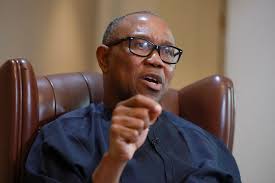
PETER OBI DEMANDS IMMEDIATE EDUCATION REFORMS FOLLOWING MASSIVE UTME FAILURE

Peter Obi, a former presidential contender, has criticized Nigeria’s educational system after the results of the 2025 Unified Tertiary Matriculation Examination showed that more than 78% of applicants received scores below 200.
In a message shared on his official social media accounts on Tuesday, Obi used official numbers from the Joint Admissions and Matriculation Board and called the result “a reflection of the deep-rooted challenges in our educational system.”
Out of 1,955,069 candidates who took the UTME, he claims that only over 420,000 had scores above 200, meaning that over 1.5 million received scores below 200.
Obi attributed years of disregard and inadequate funding for the education sector to the startling failure rate.
“The latest JAMB results once again highlight the consequences of decades of underinvestment in education, a sector that should be central to our national development strategy,” he said.
He drew comparisons with other countries to underscore Nigeria’s lag in educational advancement.
“Bangladesh, which once lagged behind Nigeria in virtually every measurable development index, now surpasses us in all key areas of development and in the Human Development Index (HDI),” he said.
Despite making up only 75% of Nigeria’s population, Obi noted that Bangladesh’s National University alone has over 3.4 million students enrolled, compared to Nigeria’s about 2 million students across all universities.
Despite having a population of roughly 87.7 million, he added, Turkey has more than 7 million university students, which is more than three times as many as Nigeria.
“Education is not just a social service; it is a strategic investment. It is the most critical driver of national development and the most powerful tool for lifting people out of poverty,” he stressed.
Calling for immediate action, Obi urged the government to “invest aggressively in education — at all levels — if we are serious about building a prosperous, secure, and equitable Nigeria.”
